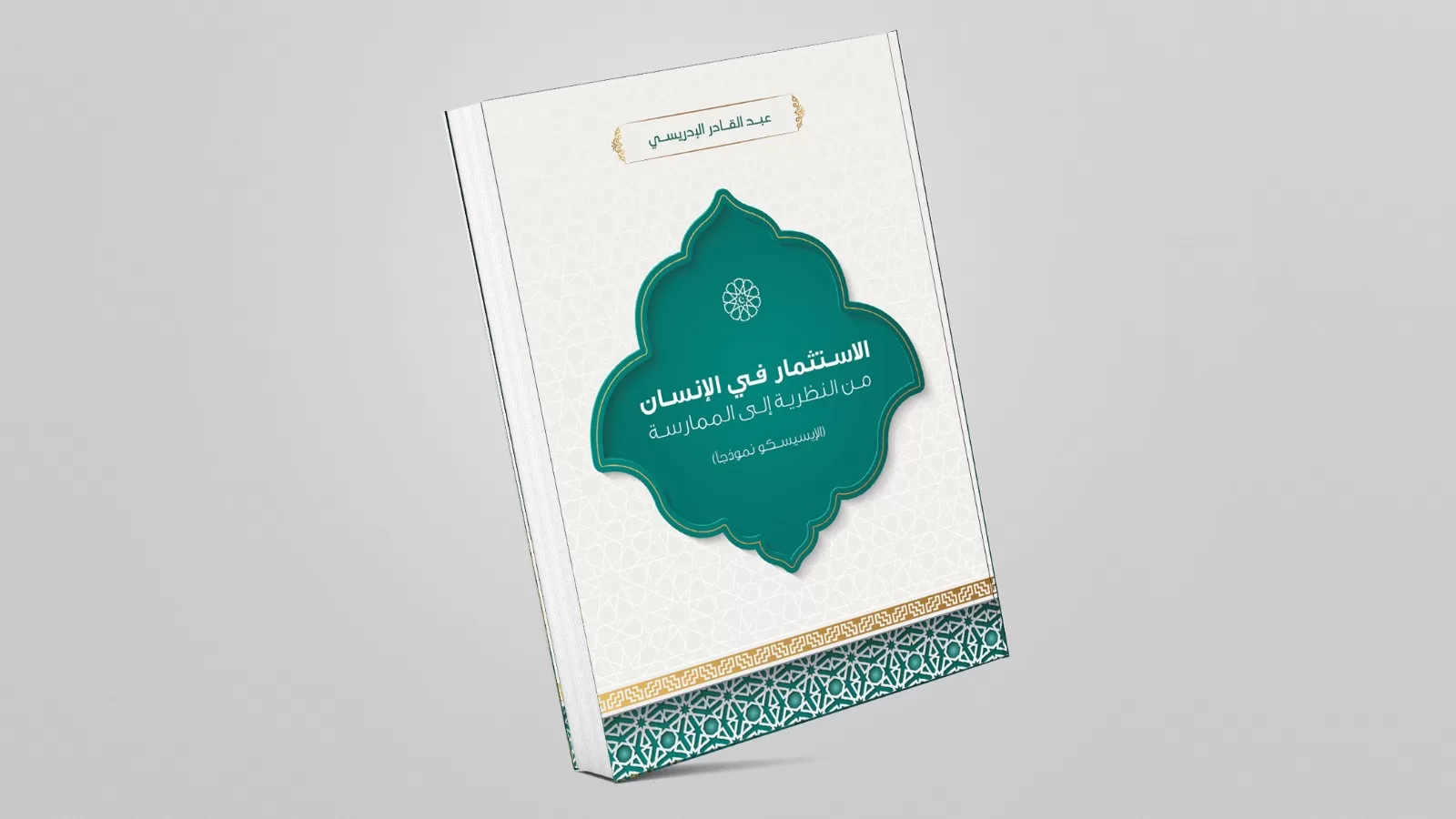
New Book Praises ICESCO’s Pilot Experience and its Civilizational Project of Investment in Human Capital

1 April 2024
A book recently published in the Kingdom of Morocco praised the creative, forward-looking vision and new strategic orientations of the Islamic World Educational, Scientific and Cultural Organization (ICESCO) and its pilot experience of investment in people from theory to practice through projects, initiatives and programs that place ICESCO at the forefront of international organizations investing in the future and the soft power. The book highlights the Islamic world’s dire need to benefit from the Organization’s expertise at a time great attention is paid to investment in the rich human capital.
The author, Professor Abdelkader El Idrissi, pointed out in this new book titled: “Investing in People from Theory to Practice… ICESCO as a case study,” that slogans such as (We Invest in People), (We Build the Future), and (We Achieve Sustainable Success), featuring on the walls and the elevator doors caught his eye first when he came back to visit the Organization’s headquarters, in Rabat, after over three years of absence. These expressions drew his attention to the term of investment in people and constituted the starting point for this study, which stands as a witness on the progress made within ICESCO.
Professor Abdelkader El Idrissi, who has so far authored five books about ICESCO, emphasized that investing in people has impacts on the development of societies, the progress of countries and the prosperity of human life, highlighting that investing in people refers to investing in the future, which is in line with the Organization’s strategies to contribute to the advancement of its Member States. The author lauded the vision of Dr. Salim M. AlMalik, ICESCO Director General, commending the development, renewal and modernization that the Organization has witnessed since he assumed his duties in 2019.
The author devoted a separate chapter to each of ICESCO’s sectors. The first chapter is titled “Investing in Education,” the second is themed “Investing in Science, Technology and Innovation,” the third focuses on “Investing in the Social and Human Sciences,” and the fourth explores “Investing in Culture and Communication,” to which he added two chapters on “Investing in Youth and Children,” and “Investing in the Future,” respectively. In its introduction, the book presents the linguistic, economic and social significations of the concept of investment both theoretically and practically.
The book indicates the great importance ICESCOattaches to practical investment in people, by harnessing its high expertise at its areas of expertiseand translating it into innovative, productive, and forward-looking programs, projects, and initiatives aimed at enhancing the human capital to contribute to the development of the Islamic world by addressingchallenges, rebuilding civilization, building the futureand ensuring access to vital areas.
In conclusion, the author considered that ICESCO’sinvestment in its areas of competence is a duty, a right, a principle, a way of life, a responsibility and a trust, explaining that all fifty-four Member States receive their share of academic benefits and functional impacts of this unique civilizational project managed and implemented by ICESCO.
In the appendices, Professor El Idrissi added that this civilizational project, which serves comprehensive and sustainable development in the Islamic world, has a prudent engineer with a wise vision, a strong determination, and extensive knowledge in building renaissance and laying the foundations for progress in the fields of education, science, technology, innovation, culture and communication, human and social sciences, youth, and children. He has a profound sense of responsibility and diligent work. He manages a work team, which helps him handle all the workload and carries out the missions that serve ICESCO’s objectives. He is Dr. Salim M. AlMalik, Director-General of ICESCO, since May 9, 2019, who, along with the Organization’s leadership, brought about a qualitative leap in ICESCO and join to the ranks of successful regional and international organizations.



